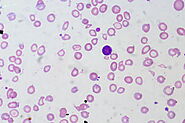-
About
- About Listly
- Community & Support
- Howto
- Chrome Extension
- Bookmarklet
- WordPress Plugin
- Listly Premium
- Privacy
- Terms
- DMCA Copyright
- © 2010-2025 Boomy Labs

 Lisa G
Lisa G
Listly by Lisa G
Parasites are living species dependent on a host body for food and living. Most parasitic worms live in human intestines, which cannot be seen through the naked eye. Children and older people are more likely to be affected by parasitic infections due to weak immune system.
Rural areas have a high risk of these infections due to contaminated water and poor sanitation. The primary sources of parasites into the human body is the intake of contaminated food and water, uncooked meat, sole of your feet, or when touching animals. Parasites are common in human bodies, but if they penetrate other parts of your body, it becomes dangerous and should be treated immediately. The symptoms may differ according to the type of parasite, but the most common symptoms of parasites include:
Tapeworm is one of the common parasitic infections that sticks to your intestines. It absorbs all your nutrition’s from food, making you hungry all the time. Usually, tapeworms enter the human body through contaminated food or water. You may face digestion issues like nausea, weakness, gas, and stomach pain. This leads to loss of weight along with a decrease in appetite.

A person having a problem in sleeping or disruption in sleep (waking up numerous times) is a symptom of a parasite. The sleeping pattern directly relates to your immune system; for instance, a disturbed sleeping pattern is a suspect to having viral, bacteria, or parasite infection. People who have a disruption in their sleep shows they have a weak immune system and are affected by viruses. Research on the immune system and sleep relationship concluded that a parasite infection exploits its host mostly in their sleep as it facilities them to grow. This causes physical discomfort to the infected person.
Pinworms are parasites that enter from your mouth when you touch your mouth with dirty fingers. The female pinworms usually come outside at night and lay eggs on your skin and make their home around hosts anus and rectum, when scratched they spread from your fingers to your other body parts causing itching. If observed strictly, they can be seen on your bed sheets or clothes.
Hookworms are found in the soil, and when barefoot is contacted, they migrate to the host's body, causing itching where they have moved.
Scabies is a common parasite found on the top layer of your skin, and they are exchanged through the skin to skin contact or when you have used infected person things. Scabies mostly lives in tiny spaces between your fingers and cause severe itching when triggered. The affected area has rashes, cracked, or swollen.
Intestinal parasites, when active, can cause pain or ache in body muscles and joints. These parasites live within the bones excreting toxic substances. That’s because parasites invade joints and also excrete toxins that cause joints to swell and ache, damaging body movements.

Generally, physical diseases have physical symptoms, while mental conditions have psychological symptoms, but sometimes they may be connected. In parasites, some people face exhaustion, fatigue, mood swings, or feeling of depression along with other physical symptoms; then, you must see a doctor. Along with this, you must also consult a physician to make sure your mental health is excellent. Moreover, some intestine parasites release toxic substances into our blood veins that produce fatigue and anxiety in our body as they come in contact with our blood vessels and neurotransmitters.

Anemia is a disease caused due to iron deficiency. It is kept in hemoglobin, which makes red blood cells. It carries oxygen to your whole body while excreting carbon dioxide. This parasite causes iron deficiency by consuming blood tissues or blood loss through infected people’s stool, which is painful. The person, along with this, may feel exhaustion and fatigue due to iron deficiency. Most of the iron is absorbed in the upper intestine of an average person, presence of gastrointestinal parasite alters the ingesting of iron into the body, so any abnormality in the intestine may cause iron deficiency.
Read full article
